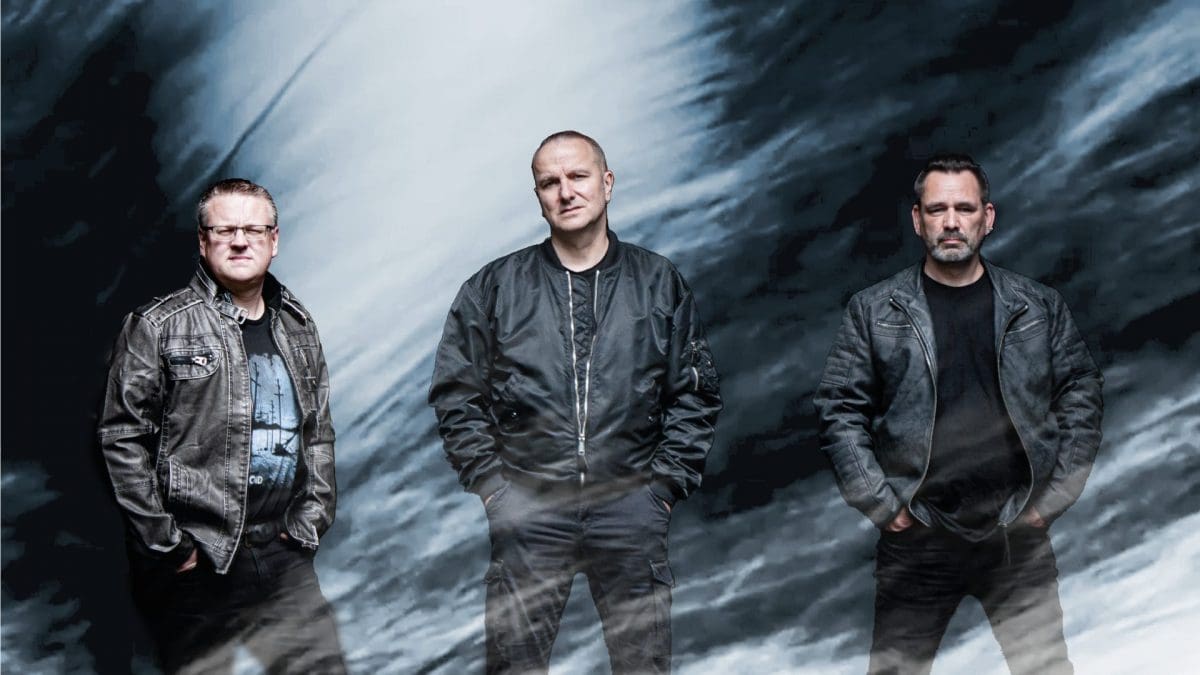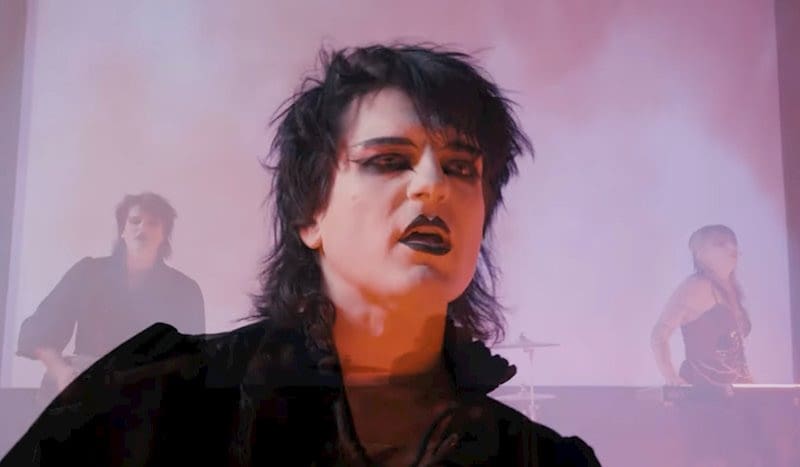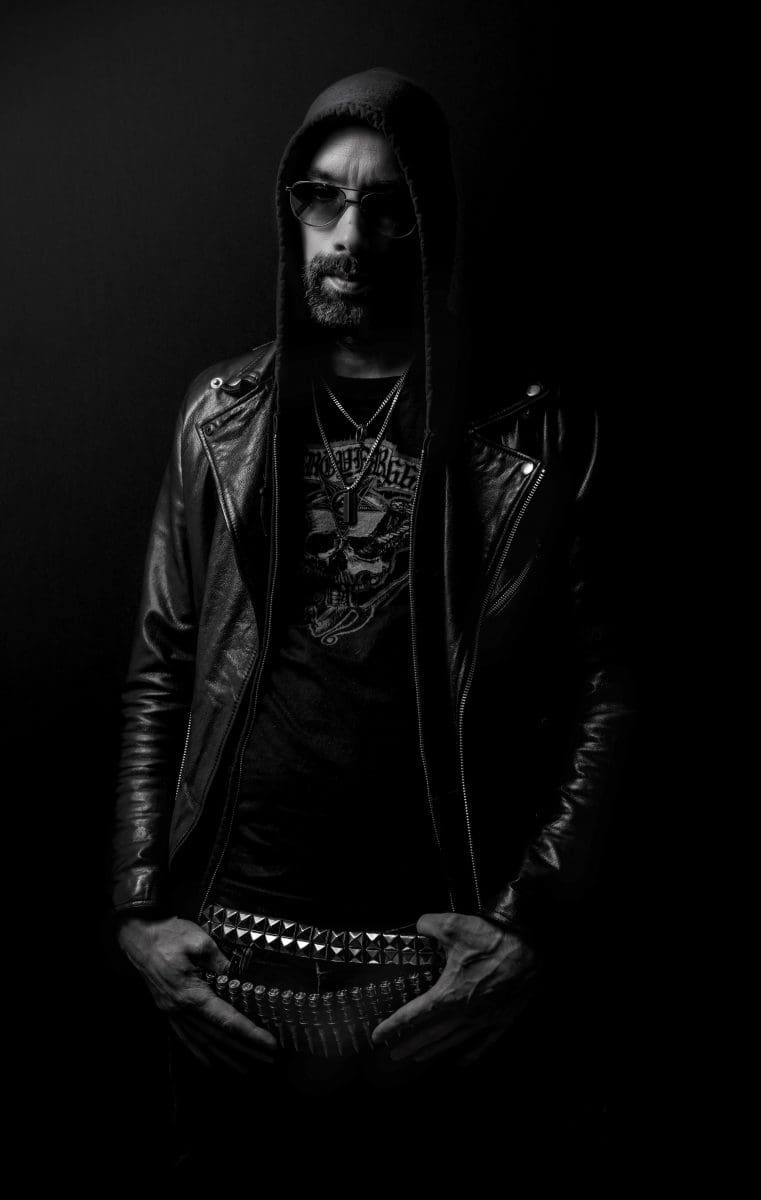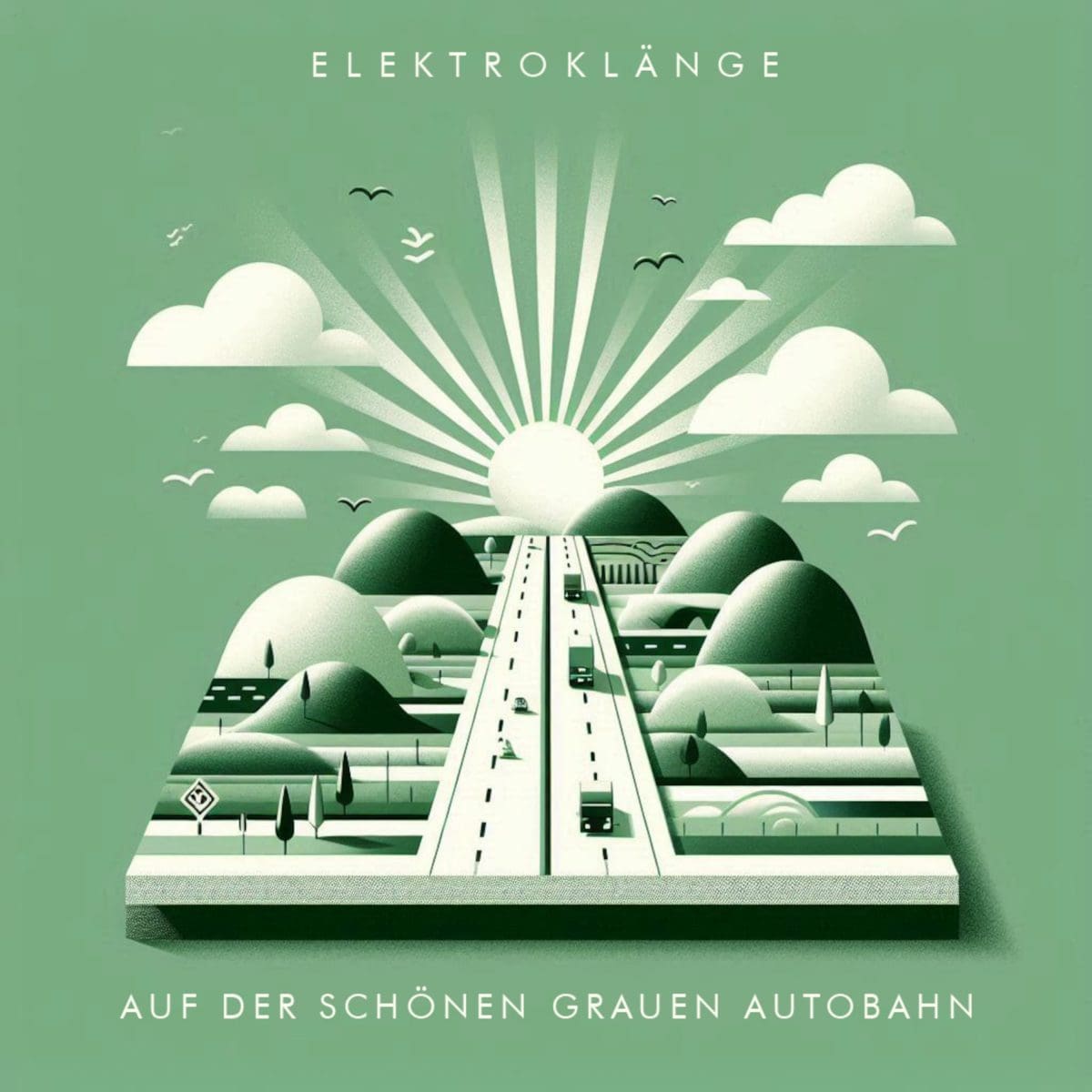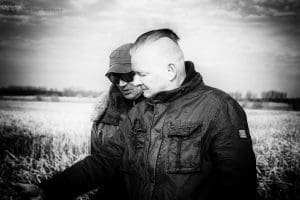‘Click Interview’ with Ghosting: ‘I Didn’t Like German Goth And The German Goths Didn’t Like Me’
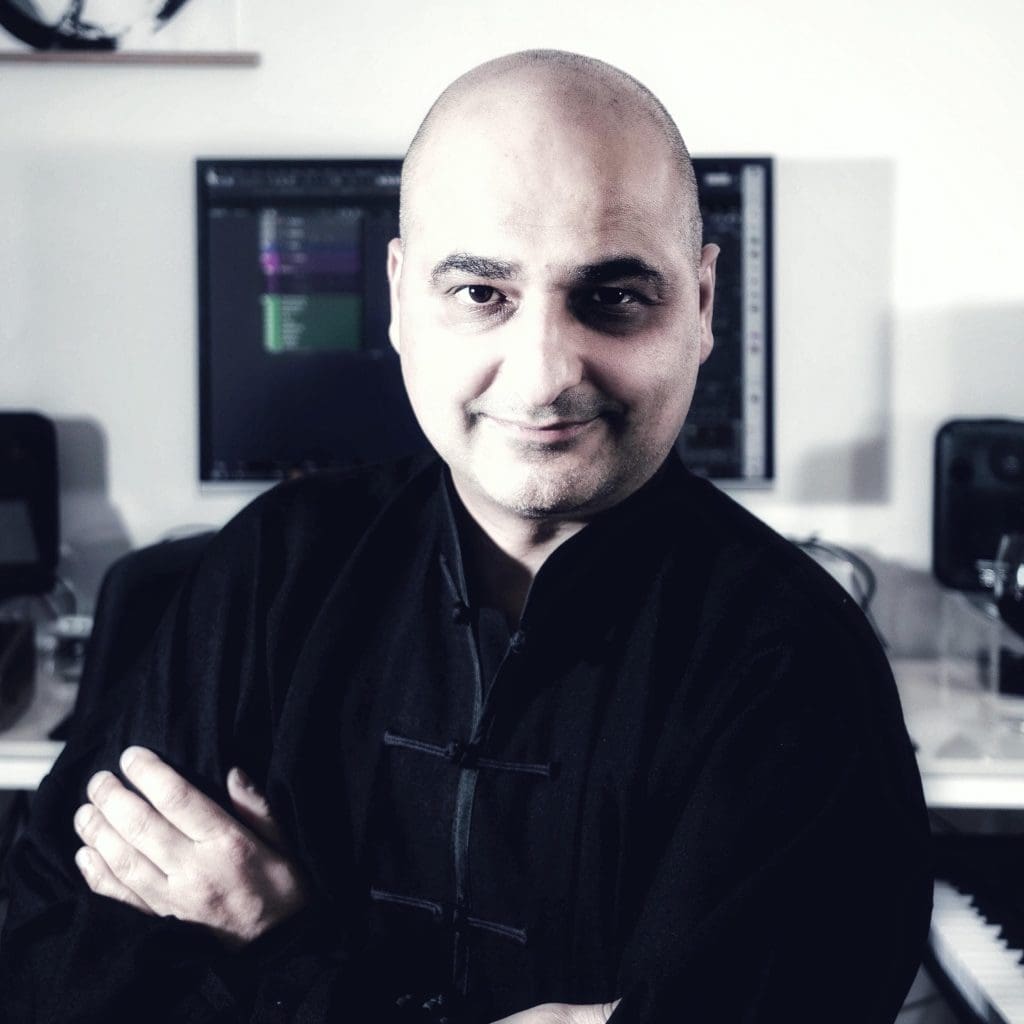
Sascha Tayefeh was fifteen years old when he set up Ghosting in 1989. The German formation was inspired by the British Post-Punk scene and started to release successful productions. The band was quite ‘hot’ in the 90s but finally stopped its activities. Nearly twenty years passed till Sascha decided to reactivate Ghosting. He started to compose new songs although his latest album “Black Pearls” released by Dark Dimensions/Alice In… is a fine selection of early songs that have been reworked and remastered. Ghosting went through different line-ups but is now a solo-project. I got in touch with Sascha Tayefeh to talk about the past and the present.
(Courtesy by Inferno Sound Diaries)
Q: You set up Ghosting in 1989. Can you draw up the balance sheet of the past 33 years? What have been the best- and worst memories?
Sascha: Well, I guess we’ve published about 7 or 8 full length albums, have been on stage for about 50 times (I’m not so much the stage guy) and created about 100 songs that we’ve published on albums, singles or compilations. I don’t know how many members Ghosting has had, but it must be a dozen.
The best memories I’ve got concern the very beginning of my music creation, back in 1989 when I had got my first sampler (actually, my first gear was a sampler, not a synth) and I was exploring the possibilities of sound creation. A sampler was a rare and expensive gear back then, and I loved the way it estranged the sound of natural instruments. It was all new to me, and it was pure magic.
The worst memories concern the co-working with most of the band members in the early years. I was too young and not so much of a team player. And I’ve never liked being on stage so touring also stays deep within my hated experiences.
Q: You were a teenager when setting up Ghosting. How do you today as an adult look back at these early years and how much of the early Sascha Tayefeh do you still recognize in you today?
Sascha: I have gone through various, deep transformations since then. I think I have completely changed a couple of times, you wouldn’t recognize me. But then again, when I decided to restart doing music two years ago, after almost 20 years of off time, I was very keen to get back to my roots, to get familiar with the Sascha of 1989. I thought the best way to do so was to recreate my first 20 songs using precisely the same gears I used back then. Doing some kind of a wanna-be time warp into my past. It actually worked and that’s how “Black Romantic III & IV” were created and released two years ago.
You know, I thought during my musical journey I had lost something I was in possession of when I started making music. This travel back into my past, into the young, almost child, was for me the point I wanted to restart doing music and see what happens. I think I was successful. The new songs I am about to create sound way more like what I want to do than what I did in the 2000s.
Q: Germany became really famous in the 90s for its Gothic scene. What made this scene become that successful? Was there a kind of spirit and what have been your experiences with other bands?
Sascha: Oh, I am sorry, I don’t know. I’ve been asked this question quite regularly, but I never considered myself to be part of the 90s German Goth scene.
First, I was involved into the London Goth scene, which I had started to explore in 1988 and where I went regularly at least twice a year until, say, 1993. Of course, I visited German Goth clubs, too, but I was never ever into the German Goth style. And back then, most Goth DJs would tell me they had no idea when to play my songs, they’d never fit in theirs sets. No, no, I didn’t like german Goth and the German Goths didn’t like me.
Second, by 1993 I had already been involved in Goth for five years, and it was becoming boring to me. While on the other hand, there was this Rave and Techno thing evolving at my doorstep, Frankfurt. I found it extremely exciting, it was the Sound of DAF, Kraftwerk, Nizzer Ebb and Front 242 taken to its max. It was something completely new. And it was exploding! Naturally, I got involved more and more into Techno.
But when I started to merge Goth with Techno in 1994 or so, nobody liked it. For the Goths it was too Techno, for the Raves too Goth. I find it very funny that meanwhile Electro-Goth sound quite like my first attempts.
So that said, I didn’t have much contact with other bands, especially not German ones of the 90s.
Q: You this year released the album “Black Pearls” which is a compilation (’best of’) of early, remastered songs. How did this album saw the daylight and did you’d specific criteria to choose the songs?
Sascha: I had plenty of requests of listeners for re-releasing the old albums. But it seemed to make no sense, because there were many songs included, I didn’t like. So I thought instead of releasing 7 old albums with mostly not-OK songs, I’d compile the songs I value the most on one single album and give it a useful cover artwork. Frankly, I think this is going to be the final physical release. I was quite surprised that there was interest in physical releases at all. I was glad to get rid of all my vinyl, CDs and tapes and have it all online now for streaming. And I am sure this is the future.
Q: A lot of things have changed over the years; think about equipment, recording- and production techniques, social media, streaming platforms etc… What’s your perception about this evolution?
Sascha: Lovely! I started with four devices –one sampler, one effect rack, one mixer and one 4-track recorder. We’ve been to recording studios stuffed full of devices and with huge mixers. By the end of the 90s, I had such a studio at home, dozens of synths, guitars, effect racks and a huge mixer. Now, I have reduced myself to 10 devices, most of them synths. All the rest is done with my computer and I am very happy about it.
Also, I love the way I am now able to manipulate each and every nuance of the sound. Back then it was all about avoiding noise and distortion. Now I can choose how much and what kind of noise and distortion I want to add to what sound. And recording and cutting and adjusting audio recordings has become so easy. Yes, indeed, I love the progression.
Q: You’re still composing new songs like the ones featured at the EP “No Dreams”. Are there significant changes in the modus operandi of the writing and production? What does Ghosting mean to you today and what are the further plans/dreams?
Sascha: There has been a change indeed in the writing. When I started writing back in 1989, I was coming from a classical composition education, i.e. I used a pen and a score paper to first write down my chords and notes and then play them on the keyboard. I had lost this practice during the 90s and that had a tremendously negative impact on the complexity of my chord progressions. I am back to that now, I start on an empty score sheet and then play it on the keyboard.
Ghosting to me is very important today. When I had stopped creating music in about 2003, I thought I could live without music at all. I thought I didn’t need it, neither listening nor creating it. Now I know I cannot do without. And when I explored my own compositions, I found that music is way more than just some sound assembled. If you mean it seriously. The creator exposes his soul. Like the photographer catches the visual moment of something or somebody, a honestly created song can be the snapshot of your emotions, your thoughts, your very soul.
I was glad I had that on the old tapes and I could relive all that. And I am glad for that insight, because now I see all serious composers with different eyes. I have realized it’s their innermost soul they expose and give you to read.
And that’s what Ghosting is to me: my way of exposing my soul, record it and create a snapshot for the world outside –and for myself. It somehow helps doing so.
Since you’re here …
… we have a small favour to ask. More people are reading Side-Line Magazine than ever but advertising revenues across the media are falling fast. Unlike many news organisations, we haven’t put up a paywall – we want to keep our journalism as open as we can - and we refuse to add annoying advertising. So you can see why we need to ask for your help.
Side-Line’s independent journalism takes a lot of time, money and hard work to produce. But we do it because we want to push the artists we like and who are equally fighting to survive.
If everyone who reads our reporting, who likes it, helps fund it, our future would be much more secure. For as little as 5 US$, you can support Side-Line Magazine – and it only takes a minute. Thank you.
The donations are safely powered by Paypal.


